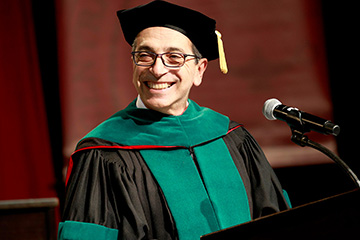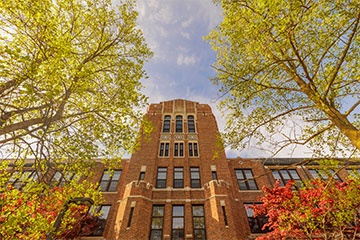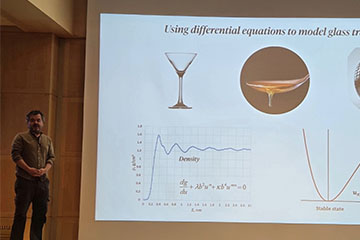Support tied to high advanced health program placement
Academic advisers help students craft competitive applications
A two-pronged approach to help Central Michigan University students build competitive applications is placing them at higher rates than national averages in advanced health programs that lead to high-wage jobs in high-demand careers.
The schools include dental and veterinary schools.
63% of all CMU students who apply to dental school are accepted, compared to a 56.4% national average, said Heidi Mahon, director of student services for the College of Science and Engineering. CMU students with highly competitive academic careers are placed 92% of the time.
For veterinary programs, while only 21.8% of applicants from across the U.S. are accepted, 55.8% of all CMU graduates are accepted with a placement rate of 83.3% of CMU’s most competitive students.
Support starts at orientation, lasts until after graduation
Support starts the second students step foot on campus and lasts their entire undergraduate career, Mahon said.
Students who identify themselves as prospective candidates for advanced health programs are given advisers during orientation, Mahon said. Those advisers are trained to help students build competitive applications for those programs.
The time frame for these acceptance rates is from 2020-24. The data also doesn’t include acceptance rates for schools in Texas, Mahon said.
“We’re focused on helping students find ways to make them competitive,” she said. CMU is one of a few Michigan schools that offers this support.
Broad experiences play role in attractive applications
Schools that offer graduate programs in advanced health fields are looking for well-rounded candidates, Mahon said. It’s a change from when GPA and entrance exam scores were the biggest factors.
Academic rigor is still important, but successful candidates can demonstrate community service, leadership, experience in healthcare and laboratory research and personal qualities like empathy.
CMU’s advisers work with students to get the necessary experiences to strengthen their applications. They also encourage students who aren’t immediately successful to contact the program they applied to and ask why.
Students use that input to strengthen identified weaknesses so they can reapply from a better position, Mahon said.
Faculty provide research experience to boost competitiveness
Faculty play a big role, too. In particular, CMU’s science labs offer students a wealth of opportunities to get research experience, she said, and faculty are eager to help students attain their career goals.
CMU students also saw higher-than-average success in the following:
- 48.2% of all CMU students who applied to osteopathic medical programs (D.O.) were accepted compared to the national average of 35 percent
- 88.9% of all CMU students who applied to optometry programs were accepted compared to the national average of 73%
- 47% of all CMU students who applied to a physician assistant program were accepted compared to the national average of 31.7%
- 84.1% of all students who applied to a physical therapy program were accepted compared to the national average of 70.6%
- CMU’s most competitive students had higher-than-average acceptance rates to medical and pharmacy schools.
- 61.9% were accepted to traditional medical schools compared to the national average of 41.2%.
- 90.9% were accepted into pharmacy school compared to the national average of 89 percent.




